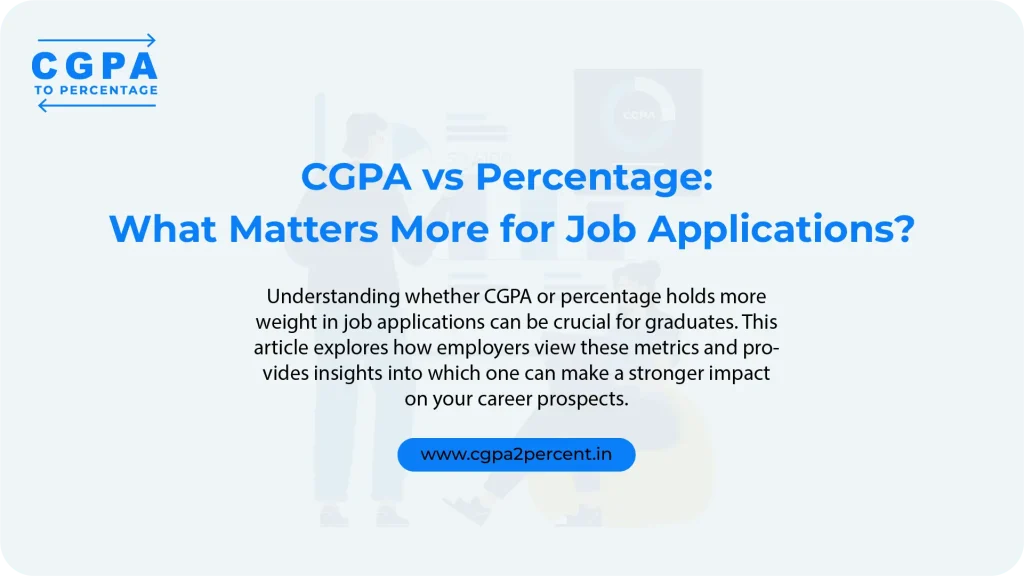CGPA or Percentage: Which Is More Important for Jobs?
The most important thing in the job applications is the academic performance. Your academic scores decide the eligibility for a job and how you stand against other applicants. CGPA and Percentage are the common criteria for the candidates to apply for a job. Percentage is the traditional method of grading students, while CGPA is more commonly used nowadays. Let’s understand which one carries more weight in job applications?

The Shift from Percentage to CGPA
In recent years, many Indian universities and schools have adopted the CGPA system. The major reason is that the Percentage system puts more pressure on students. It just includes the marks for evaluating students. The CGPA system includes different other factors and is a broader system of evaluating performance of students. It does not only include the final exam, but the other aspects as well, like class participation, assignments, and projects.
However, this shift causes some confusion, especially when students step into the job market. Recruiters usually still consider the Percentage system. Therefore, students are usually required to apply netflix mod apk for the jobs according to the Percentage score.
Which One Do Employers Prefer?
The preference between CGPA and percentage varies among employers, and it often depends on the industry, the job role, and the company’s own criteria. Let’s understand how recruiters interpret these grading systems for the jobs.
- Traditional Industries:
In traditional sectors like government jobs, banking, and certain public sector undertakings (PSUs), the percentage is still the dominant metric. Many of these jobs have eligibility criteria that specifically mention a minimum percentage, not CGPA.
- Modern Sectors:
In contrast, modern sectors like IT, consulting, and startups tend to be more flexible. They are more accustomed to the CGPA system and often have internal conversion metrics to translate CGPA into percentage or vice versa.
- MNCs and Global Companies:
Multinational corporations (MNCs) and global companies operating in India often have a more global perspective. Since CGPA is a common evaluation metric worldwide, these companies are more likely to accept CGPA as a valid measure of academic performance.
- Recruiter’s Preference:
Some recruiters prefer CGPA because it reflects a student’s performance over time, providing a more comprehensive view of their capabilities. Others prefer percentage because it’s easier to interpret and compare across different educational systems.
The Role of CGPA and Percentage in Interviews
When it comes to the interview process, CGPA or percentage is just one part of the overall evaluation. Here’s how they play a role:
- Screening Stage:
Many companies use CGPA or percentage as a filter to shortlist candidates. For instance, a job listing might specify a minimum CGPA of 7.0 or a percentage of 70% as a requirement.
- Resume Evaluation:
A higher CGPA or percentage can make a resume stand out, especially in a competitive job market. It signals academic diligence and consistency.
- Technical Rounds:
For technical positions, recruiters often look beyond the CGPA or percentage to evaluate a candidate’s practical skills. However, a strong academic record can help in clearing initial rounds.
- HR Interviews:
In HR interviews, soft skills, cultural fit, and overall personality often take precedence over academic scores. Here, CGPA or percentage might be referenced, but isn’t usually a deciding factor.
CGPA or Percentage?
So, which one matters more? The answer isn’t straightforward. It largely depends on the job and the industry. However, some general observations can be made:
- For Fresher Jobs: Both CGPA and percentage are crucial, as they are often the only measure of a candidate’s capabilities.
- For Experienced Professionals: Work experience tends to overshadow academic scores. Here, the relevance of CGPA or percentage diminishes.
- In Academia or Research: CGPA might hold more importance, especially if you’re pursuing higher studies or applying for research roles.
Frequently Asked Question
Conclusion
While both CGPA and percentage are important, different industries prefer their own criteria for applications. It is important for students to clearly understand the eligibility criteria and apply accordingly. If your grading system is different, then you can easily convert them into other systems. Use our CGPA to Percentage Calculator to easily convert your CGPA into percentage.
